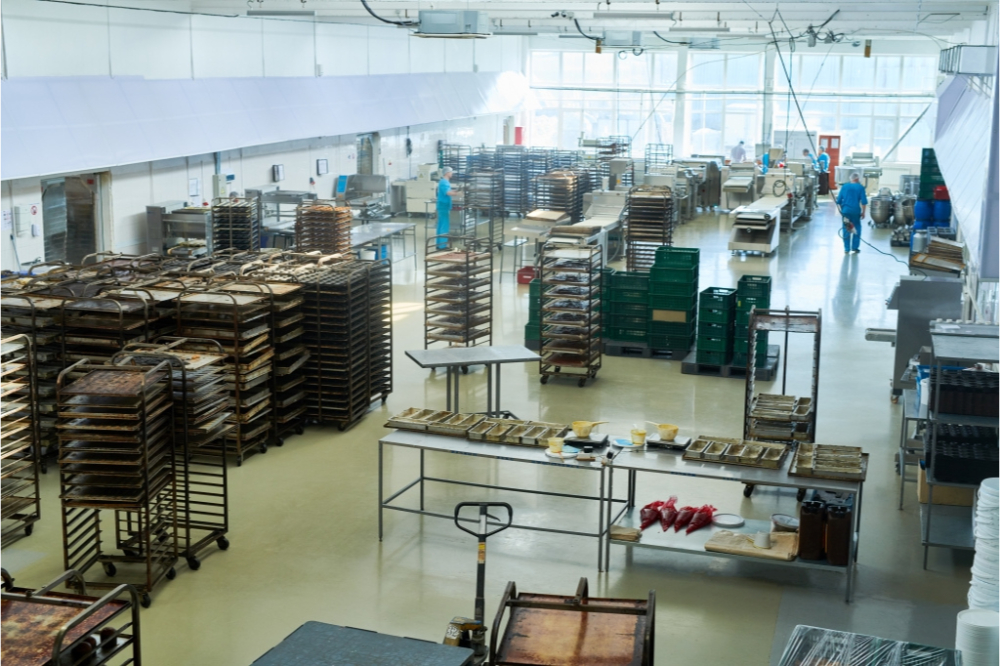What is NAFDAC?

NAFDAC refers to the National Agency for Food and Drug Administration and Control, the government regulatory agency charged with regulating and controlling the manufacture, importation, exportation, distribution, advertisement, sale and use of food, drugs and related products ("Regulated Products").
What products need to be registered with NAFDAC?
"Regulated Products" include foods, drugs, cosmetics, medical devices, packaged water, chemicals, detergents.
All Regulated Products, must be registered with NAFDAC before they can be bought, manufactured, sold and distributed into the Nigerian market.
Can a foreign manufacturer of any of the regulated products apply directly to NAFDAC for the registration of its products?
No, it cannot. Foreign Manufacturers ("FMs") are required to register their products through local representatives – Nigerian entities/persons, in whose name the product registration certificates will be issued. FMs usually achieve this through any of the following options:
(a) Incorporation of local subsidiaries in Nigeria for the purpose of registering their products with the NAFDAC;
(b) Appointment of an existing Nigerian company (such as their local distributors) as their local representatives in Nigeria; or
(c) Engaging a custodial services company to hold the product registrations on their behalf. This option is usually adopted by FMs who prefer not to appoint their local distributors as their local representative and also do not want to go through the rigors of incorporating a company in Nigeria solely for the purpose of holding their product registrations. The services rendered by the custodial services company will include holding the NAFDAC registrations in its own name and issuing Letters of No Objections to enable the FM's distributors import the registered products into the Nigerian market.
How long is the NAFDAC product registration process?
The registration process can be completed within 90 working days from the date of acceptance of the application for food products, and 120 working days for drug products.
This is, however, subject to delays often attributable to delays in providing requested information or documents, bjections or bureaucratic bottlenecks that often arise in the course of the registration. Therefore, the process typically takes longer in practice.

What documents are required for registration?
The application for product registration is made through the NAFDAC Automated Product Administration and Monitoring System (NAPAMS) portal. The following documents are required for registration:
- Completed application form;
- Application letter addressed to the Director-General of NAFDAC and directed to the appropriate directorate within NAFDAC, based on the nature of the product;
- Certificate of Registration (or Notice of Acceptance) or Renewal Certificate (where applicable) of the brand name/trade mark with the Nigerian Trade Marks Registry;
- Invitation letter written by the manufacturer addressed to NAFDAC, requesting for the inspection of the manufacturer's factory;
- Means of Identification/Certificate of Incorporation or registration of the applicant;
- Samples of the labels of each product (which must comply with NAFDAC's labelling requirements), and must contain relevant information such as the list of ingredients, batch number of the products issued by NAFDAC, date marking instructions etc;
- Evidence to support any special labeling claims regarding the character, quality and safety of the product (where applicable);
- A declaration to be made before a notary public by the applicant confirming that the information and documents submitted to NAFDAC are authentic;
- Adequate number of samples of the product; and
- Evidence of payment of the prescribed fees.
Where the products to be registered are imported, the following additional documents will be required:
- Power of attorney ("PoA") granted to a Nigerian representative or an agreement between the manufacturer and the Nigerian agent empowering the Nigerian agent to register the product(s) in Nigeria;
- Certificate of Manufacture and Free Sale;
- Comprehensive Certificate of Analysis of the product;
- Certificate of Incorporation of the Nigerian agent/representative with the Corporate Affairs Commission;
- Application letter for Import Permit by the Nigerian agent/representative (where applicable);
- A declaration to be made before a notary public by the Nigerian agent/representative in Nigeria confirming that the information and documents submitted to NAFDAC are authentic.
Documents listed above are based on the current regulatory requirements and may change without prior notice, based on NAFDAC Regulations or the nature of the product to be registered.
What is the procedure for product registration?
The procedure entails the following stages:
- Submission of Application;
- Document Verification;
- Facility Inspection/Sampling;
- Laboratory Analysis;
- Final Vetting;
- Approval Meeting; and
- Issuance of NAFDAC Registration Number/ Certificate of Registration.
Can you give the estimated costs for product registration?
The estimated costs for product registration would be dependent on the type of products to be registered (for example, food, drinks drugs, medical devices etc.) and are contained in NAFDAC's Tariff schedules, which can be found on the agency's official website.
How long is a NAFDAC product registration certificate valid for?
5 (Five) years, renewable for subsequent periods of 5 (Five) years each.
How do I transfer ownership of product licence/registration?
A transfer of a product licence or registration typically happens in one of two situations:
- Change of Local Representative: For a foreign manufacturer, this may occur where there is a change of its local representative.
- Assignment of Product or Change of Licence Holder: This may happen where the product is sold or transferred to a third party or where the licence holder undergoes a name change or restructuring.
In the case of the former, the foreign manufacturer shall apply to NAFDAC for the change of its local representative and the appointment of a new one. This is discussed in more details below.
If the transfer results from the assignment of the product to a third party or a change in the name or restructuring of the licence holder, a formal application may be submitted to NAFDAC. The application should include the following supporting documents:
- Resolution of the Board of Directors of the holder of the product licence approving the change of name of the company, or sale of the product;
- Copy of Product Registration Certificate;
- Evidence of assignment of the trademark (where applicable);
- Newspaper publication; and
- Old and newly issued certificates of incorporation (in the case of a change of name)
What do I do if I terminate relationship with my local representative?
A foreign manufacturer/product owner that has terminated its relationship with its local representative, must appoint a new one and thereafter, notify NAFDAC of the change of local representative.
This process involves writing a letter to NAFDAC to notify it of the revocation of the PoA granted to the previous local representative and introducing the new local representative. The letter should be accompanied by the following supporting documents:
- A written and notarised instrument from the manufacturer/owner of the product officially revoking the PoA issued to the initial representative;
- Notarised PoA appointing the new agent/representative; and
- Copy of Product Registration Certificate;
After registration, can I change the product label?
Yes, you can. However, any change in the product label of a registered product will require notification to NAFDAC, which will entail the submission of the revised labelling information to NAFDAC to ensure compliance with its labelling requirements.

When are clinical trials mandatory?
According to NAFDAC's 2024 Guidelines for Clinical Trial Application, a clinical trial is compulsory for the following:
- New or relatively new chemical entities, or herbal formulations for which safety/efficacy profile has not been determined.
- Drugs for new indications.
- Drugs for new patient population group (e.g., age group or race);
- New combination drug products;
- New dosage schedule/regimen;
- New drug delivery system; and
- New Medical devices, IVDs and related products.
Can I conduct clinical trials in Nigeria?
Yes, you can. However, NAFDAC's approval must be obtained before the trial can be conducted. Also, clinical trials should be conducted in accordance with the approved protocol, Good Clinical Practice and NAFDAC's requirements.
Which regulatory authorities are responsible for clinical trials in Nigeria?
The two major authorities are:
- NAFDAC: responsible for protocol review and approval of clinical trials in Nigeria. It also conducts inspections of trial sites to monitor compliance with authorised studies and ensures the well-being and safety of participants, as well as the credibility of the data obtained.
- National Health Research Ethics Committee (NHREC): responsible for accrediting Independent Ethics Committees or Institutional Review Boards that provide ethical opinions on study protocols.
What is the difference between pack size, variance and primary packaging material of a product?
Pack size is the standard full-case quantity of units for each product.Pack size extension is the introduction of new net contents into already registered products through the original packages or in new primary packages.
Variation, however, is any administrative or substantive change to the details of a registered product, which is subject to acceptance by NAFDAC prior to implementation.
Primary packaging material ("PPM") is any packaging material that comes in direct contact with the registered product.
For example;
Assuming the soft drink brand sells its cola in 500ml bottles, typically packaged in cartons containing 12 bottles per case. The pack size here is 12 bottles per case. If the company introduces a 24-bottle pack, that would be a pack size extension.
If the company decides to adjust the formulation by reducing sugar content or a different flavour, these are variations. Since these changes affect the registered product details and composition, they require NAFDAC approval before implementation.
The 500ml plastic bottle (PET) that holds the soft drink is the primary packaging material. If the company decides to switch from a plastic bottle to an aluminium can, that would be a change in primary packaging material.
Please note that any change in the primary packaging of a registered product requiring a pack size extension will have to undergo a laboratory evaluation by NAFDAC to ensure the product quality is not compromised.
Can i register products myself without going through an agent?
Only FMs are required to apply through a local representative. A Nigerian person/entity is not required to register with NAFDAC through a local representative.
Is there an expedited process?
No, there is not. NAFDAC's product registration process involves a cumbersome vetting process that takes about 90 working days from the date of acceptance of the application for food products, and 120 working days for drug products (barring all bureaucratic delays or objections raised by NAFDAC) to ensure that all approved products meet the minimum health and safety standard for public use.
What is good manufacturing practice?
Good Manufacturing Practice ("GMP") is a quality assurance practice that ensures that Regulated Products are consistently manufactured and controlled to the quality appropriate for their intended use. NAFDAC has stipulated the minimum standards of GMP that manufacturers are required to comply with to ensure the quality of the Regulated Products.
Will NAFDAC inspect the factory where my products are manufactured before registering my products?
Yes, it will. Part of NAFDAC's mandate is to conduct appropriate investigations into production premises and establish the relevant quality assurance systems to certify such premises. Therefore, the product registration process includes facility inspection by NAFDAC. An application to the Director-General of NAFDAC in this regard is usually among the documents to be submitted for the application for product registration.
The content of this article is intended to provide a general guide to the subject matter. Specialist advice should be sought about your specific circumstances.





